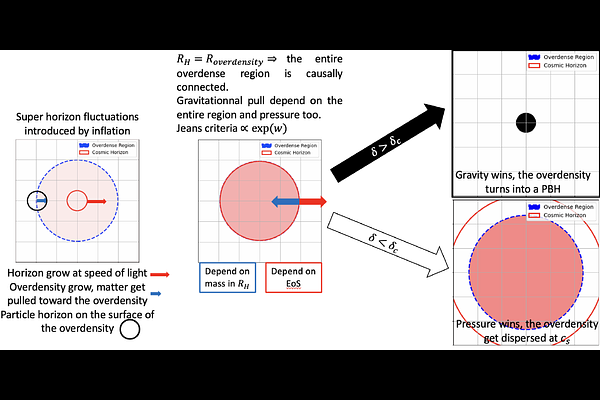Primordial black-hole formation and heavy r-process element synthesis from the cosmological QCD transition. Two aspects of an inhomogeneous early Universe

Primordial black-hole formation and heavy r-process element synthesis from the cosmological QCD transition. Two aspects of an inhomogeneous early Universe
M. Gonin, G. Hasinger, D. Blaschke, O. Ivanytskyi, G. Röpke
AbstractWe review the role of primordial black holes (PBHs) for illuminating the dark ages of the cosmological evolution and as dark matter candidates. We elucidate the role of phase transitions for primordial black hole formation in the early Universe and focus our attention to the cosmological QCD phase transition within a recent microscopical model. We explore the impact of physics beyond the Standard Model on the cosmic equation of state and the probability distribution for the formation of primordial black holes which serve as dark matter (DM) candidates. We argue that besides primordial black holes also droplet-like quark-gluon plasma inhomogeneities may become gravitationally stabilized for a sufficiently long epoch to distill baryon number and form nuclear matter droplets which upon their evaporation may enrich the cosmos locally with heavy $r$-process elements already in the early Universe.